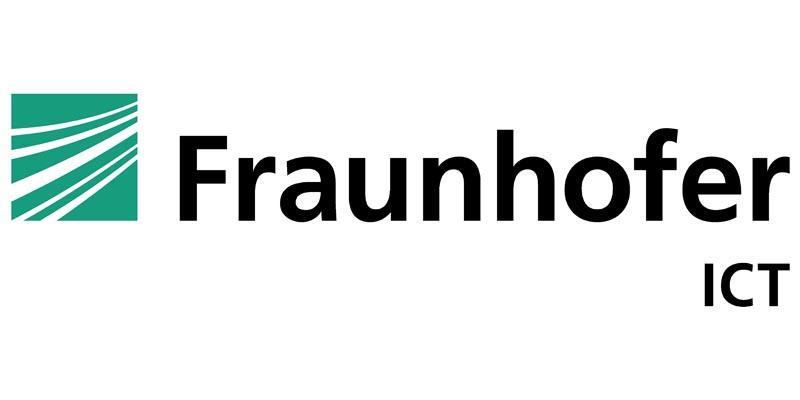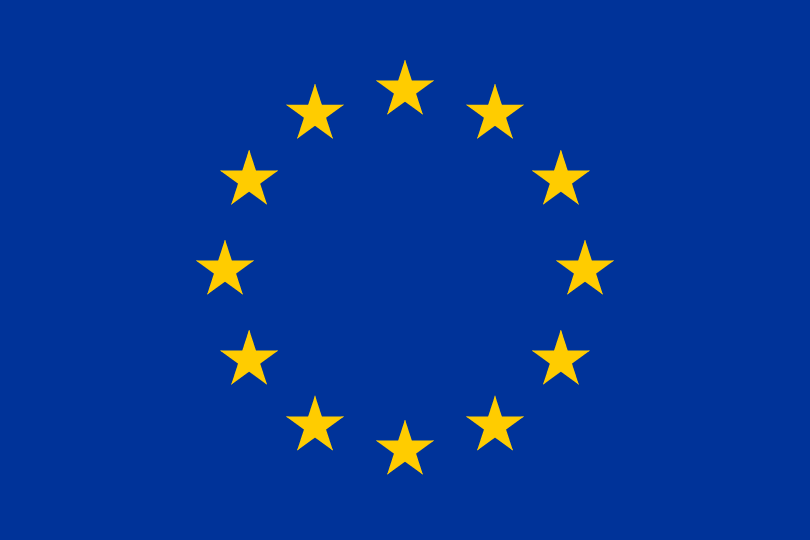Participant organization
Fraunhofer ICT

The Fraunhofer-Gesellschaft:
The Fraunhofer-Gesellschaft, based in Germany, is a leading applied research organization. It plays a crucial role in the innovation process by prioritizing research in key future technologies and transferring its research findings to industry in order to strengthen Germany as a hub of industrial activity as well as for the benefit of society. Founded in 1949, the Fraunhofer-Gesellschaft currently operates 76 institutes and research units throughout Germany. Its nearly 32,000 employees, predominantly scientists and engineers, work with an annual business volume of 3.4 billion euros; 3.0 billion euros of this stems from contract research, which is divided into three funding pillars. Fraunhofer generates a share of this from industry and license-fee revenue, totaling 836 million euros. This high proportion of industrial revenue is Fraunhofer's unique selling point in the German research landscape. Another share of contract research revenue comes from publicly funded research projects. The final share is base funding supplied by the German federal and state governments and enables our institutes to develop solutions now that will become relevant to the private sector and society in a few years.
Institute profile - Fraunhofer Institute for Chemical Technology
The use of wind energy, and also photovoltaics in the near future, allows us to operate our main campus with a decreasing carbon footprint.
This campus comprises over 100 laboratories, pilot plants and test centers on 21 hectares of land in Pfinztal, near Karlsruhe. Our research strategy enables us to combine research and development work in this sector with large-scale demonstrators on our campus.
536 people are currently employed at Fraunhofer ICT. Our main campus is located on the Hummelberg hill in Pfinztal near Karlsruhe.
Our customers and project partners include chemical and chemical process engineering companies, automotive manufacturers and their suppliers, the aviation industry, the construction industry, the plastics processing industry, material manufacturers, recycling companies, companies in the energy and environmental sectors, and customers with safety-related issues. We are also the only explosives research institute in Germany to offer the entire spectrum from laboratory testing and technical processing through to fully developed systems.
FHG-ICT is an accredited and approved testing facility. FHG-ICT performs certification as well as private measurement series using tailored testing scenarios, in which the basic parameters of various chemical substances can be measured.
In NARCOSIS FHG-ICT will develop spectroscopic Raman detection, reference analytics, performance verification and validation of sensors as well as preparation and characterization of reference sample materials. Besides this FHG-ICT will use commercially available SERS-substrates and evaluate the possibility of developing taylor made SERS substrates, which will allow sample collection by directly wiping a surface –this will be achieved by embedding gold or silver nanoparticles into a water-swellable matrix (gel-like polymers or cellulose fibres.
This project has received funding from the European Union’s Horizon Europe research and innovation programme (Civil Security for Society) under grant agreement No 101168195.
For administrative and contractual information visit the European Commission's Cordis website.


